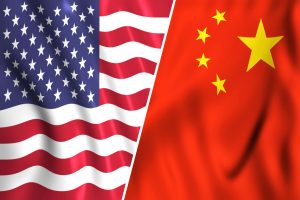The Taliban on Tuesday announced an all-male interim government for Afghanistan stacked with veterans of their hard-line rule from the 1990s and the 20-year battle against the U.S.-led coalition, a move that seems unlikely to win the international support the new leaders desperately need to avoid an economic meltdown.
Appointed to the key post of the interior minister was Sirajuddin Haqqani, who is on the FBI’s most-wanted list with a $5 million bounty on his head and is believed to still be holding at least one American hostage. He headed the feared Haqqani network that is blamed for many deadly attacks and kidnappings.
Advertisement
The announcement came hours after the Taliban fired their guns into the air to disperse protesters in the capital of Kabul and arrested several journalists, the second time in less than a week that heavy-handed tactics were used to break up a demonstration.
Drawn mostly from Afghanistan’s dominant Pashtun ethnic group, the Cabinet’s lack of representation from other ethnic groups also seems certain to hobble its support from abroad.
As much as 80% of Afghanistan’s budget comes from the international community, and a long-running economic crisis has worsened in recent months. Near daily flights from Qatar bring in humanitarian aid, but the needs are massive, and the Taliban can hardly afford isolation.
In announcing the Cabinet, Taliban spokesman Zabihullah Mujahid emphasized that the appointments were temporary. He did not say how long they would serve and what would be the catalyst for a change.
Since taking over Afghanistan in mid-August after U.S. troops withdrew, the Taliban have shown no indications they will hold elections.
The U.S. State Department in a statement expressed concern that the Cabinet included only Taliban, no women, and personalities with a troubling track record, but said the new administration would be judged by its actions.
The carefully worded statement noted the Cabinet was interim but said the Taliban would be held to their promise to give safe passage to both foreign nationals and Afghans, with proper travel documents, and ensure Afghan soil would not be used as to harm another.
“The world is watching closely,” the statement said.
The interim prime minister, Mullah Hasan Akhund, also headed the Taliban government in Kabul during the last years of its rule. Mullah Abdul Ghani Baradar, who had led talks with the U.S. and signed the deal that led to the withdrawal, will be one of two deputies to Akhund.











